How Malaysia’s unique system of rolling monarchy works
Sultan Ibrahim Sultan Iskandar is set to take over from King al-Sultan Abdullah in January 2024
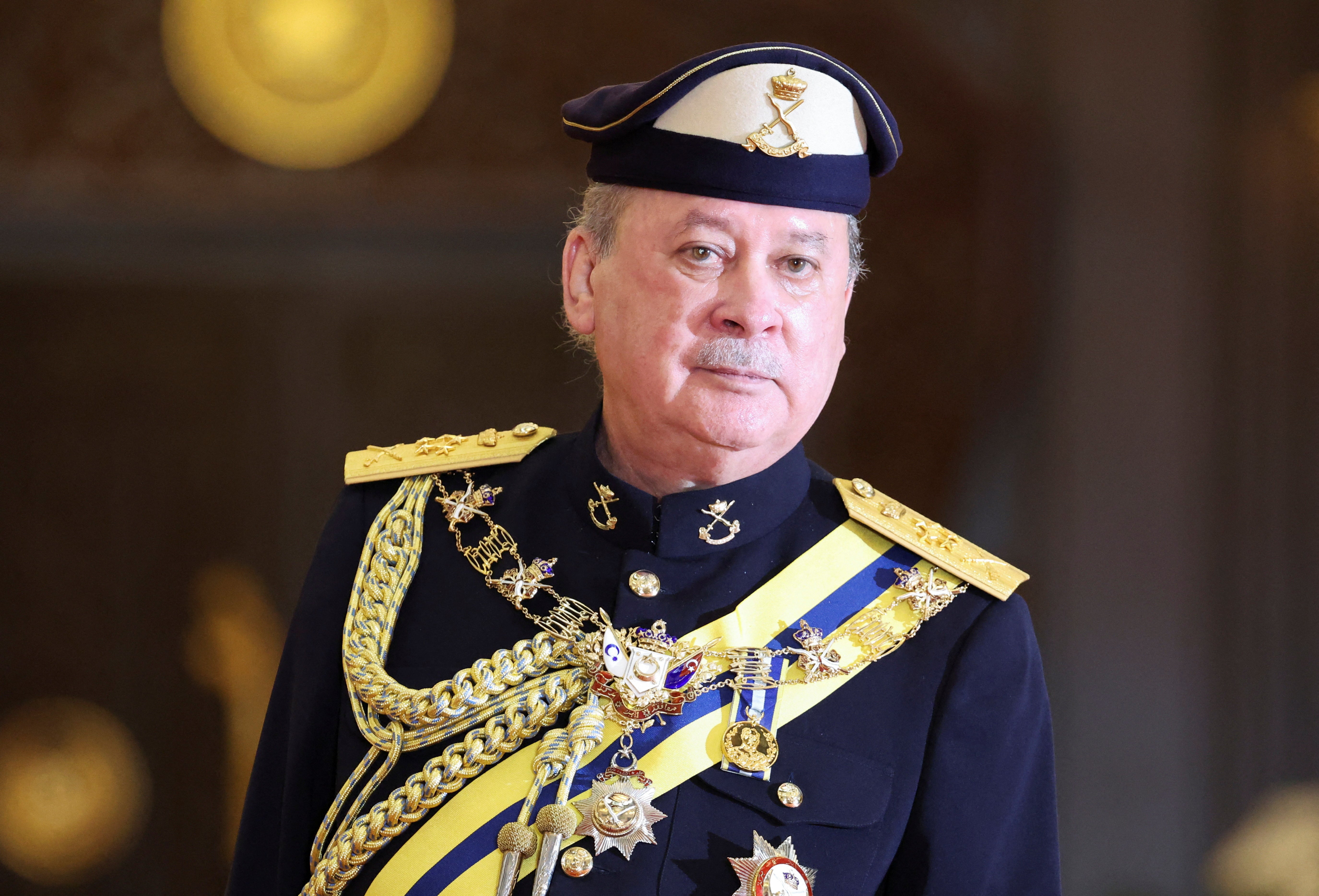
Your support helps us to tell the story
This election is still a dead heat, according to most polls. In a fight with such wafer-thin margins, we need reporters on the ground talking to the people Trump and Harris are courting. Your support allows us to keep sending journalists to the story.
The Independent is trusted by 27 million Americans from across the entire political spectrum every month. Unlike many other quality news outlets, we choose not to lock you out of our reporting and analysis with paywalls. But quality journalism must still be paid for.
Help us keep bring these critical stories to light. Your support makes all the difference.
Sultan Ibrahim Iskandar, a billionaire from the southern state of Johor, has been sworn in as the 17th king of Malaysia under a unique rotating monarchy system.
Sultan Ibrahim Iskandar, 65, took his oath of office at the palace and signed the instrument of the proclamation of office in a ceremony witnessed by other royal families, Prime Minister Anwar Ibrahim and Cabinet members. A coronation ceremony will be held later.
He replaced King al-Sultan Abdullah who was appointed only in 2019. His dethroning is part of Malaysia’s unique system of rotational monarchy in which the heads of its royal families – sultans of nine of its 13 states – take turns to be king for a five-year term.
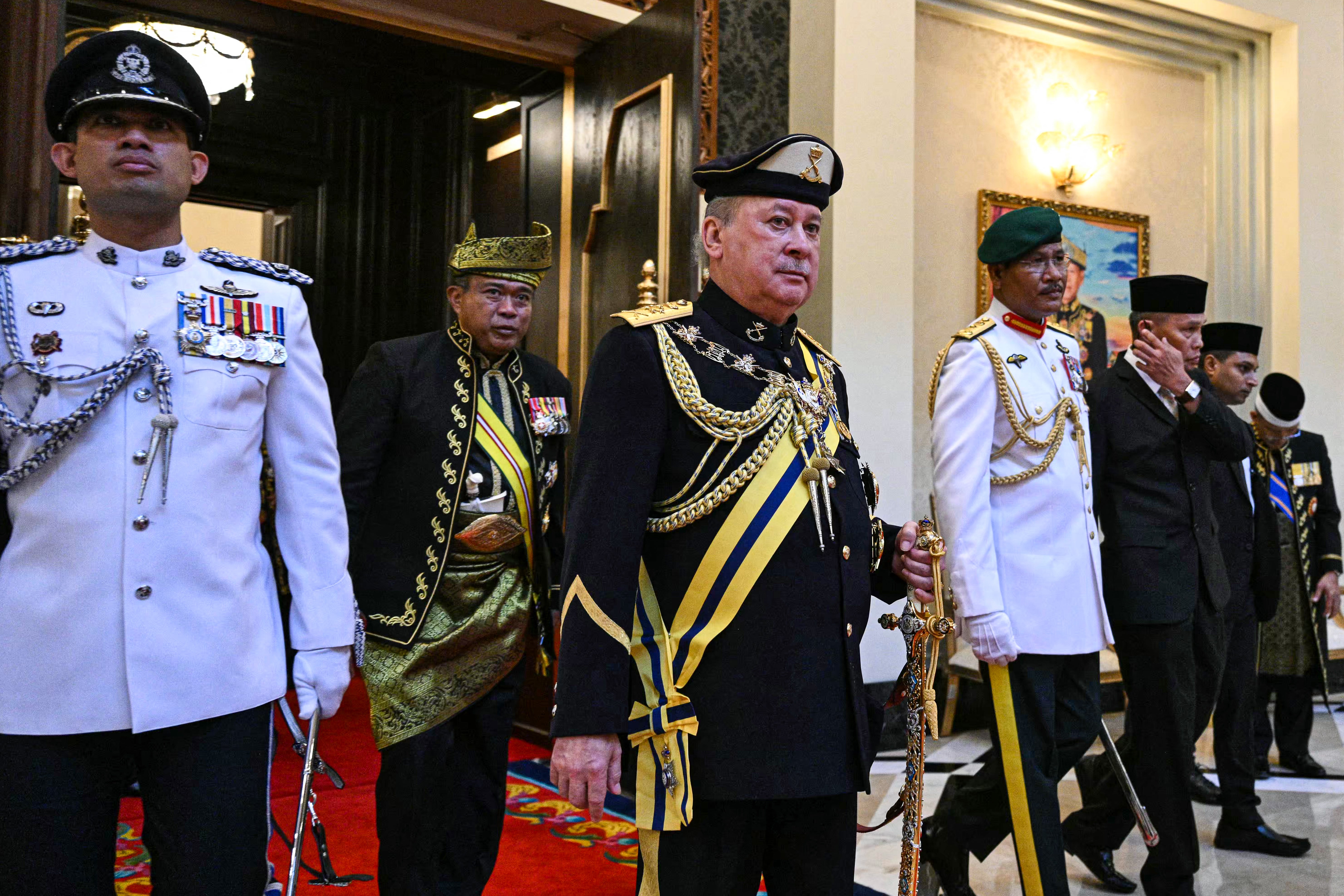
After independence from British colonial rule in 1957, the order of rotation among the sultans was determined by seniority, based on how long they had been ruling. But that rule was dropped after all the royal families completed a term each. They now take turns based on the initial order.
They hold a secret vote but the ballot only has the name of the sultan whose turn it is. Each sultan is required to indicate whether they believe the nominee is suitable to be king and the candidate must get a simple majority.
Once the result is announced, the ballot papers are destroyed in the presence of the sultans.
Who is the new king and why has the role become important over the years
Though the Southeast Asian country is a parliamentary democracy in which the monarch largely serves as head of state – playing a ceremonial role – the position has become more influential in recent years due to prolonged political instability during which the king has wielded rarely used discretionary powers.
The 64-year-old new king – Sultan Ibrahim Sultan Iskandar from the southern state of Johor – took over from King al-Sultan Abdullah.
His election had been widely expected, as the ruler of Johor state bordering Singapore was next in line based on a rotation order established among the country’s nine state rulers. Sultan Ibrahim, a ruler who takes annual road trips to meet people in his state, earlier expressed his readiness to be king.
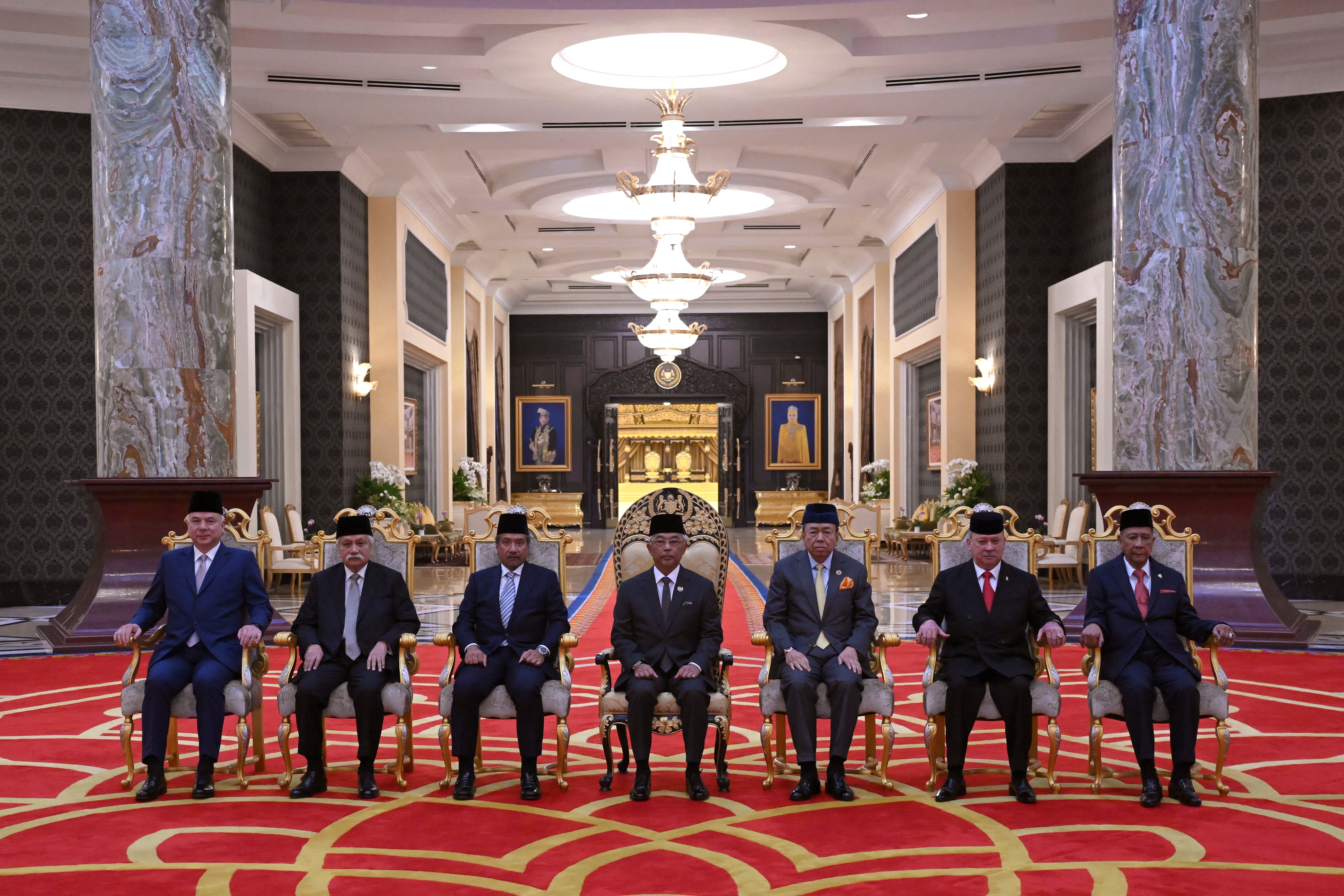
“It is not a promotion. It is a responsibility I am prepared to undertake,” he told the national Bernama news agency last month. “The (people) will always come first.”
Known to have a big collection of luxury cars and motorcycles, he also has wide-ranging business interests from real estate to mining. A company he has a stake in has a joint venture with struggling Chinese property developer Country Garden to develop a $100bn project called Forest City in Johor.
He also owns a private army.
Unlike other traditional Malaysian rulers, Sultan Ibrahim has been outspoken about politics and has said he has a good relationship with prime minister Anwar Ibrahim, who he believes should be given more time to strengthen the economy.
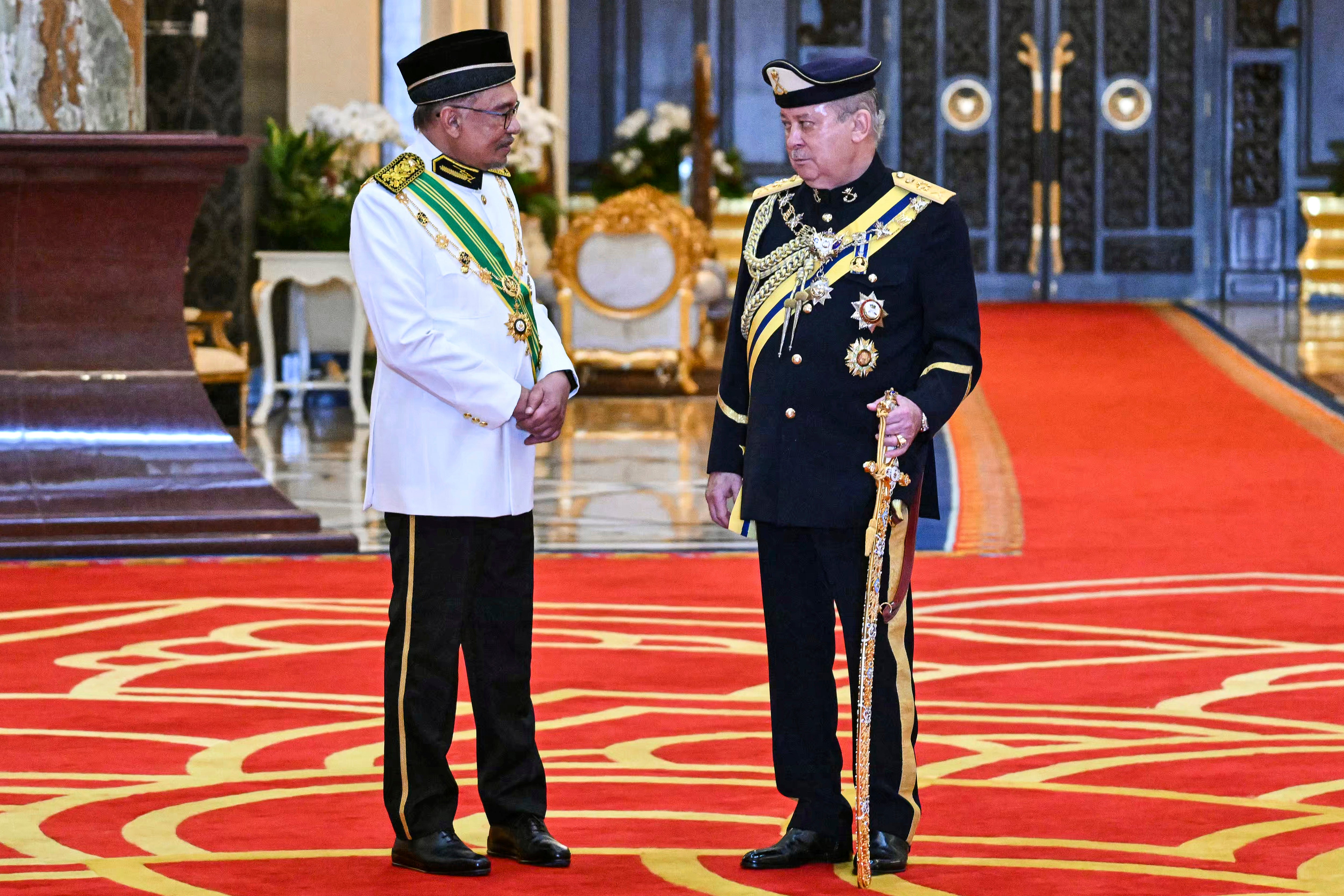
The sultan has publicly advocated setting up a special economic zone between Johor and neighbouring Singapore to strengthen ties.
The incumbent has also played an unusually active role in Malaysian politics, despite it largely being a ceremonial position where the monarch acts as custodian of Islam in the Muslim-majority country.
The federal constitution grants the monarch only a few discretionary powers, with the king largely required to act upon the advice of the prime minister and cabinet.
It also allows the king to appoint a prime minister who he believes has a parliamentary majority, a power never utilised until 2020, as the premier is typically picked through an election.
King al-Sultan used those powers during a period of political instability triggered by the defeat of the United Malays National Organisation (UMNO), which had governed Malaysia uninterrupted since independence until 2018. He picked the last three prime ministers of the country.
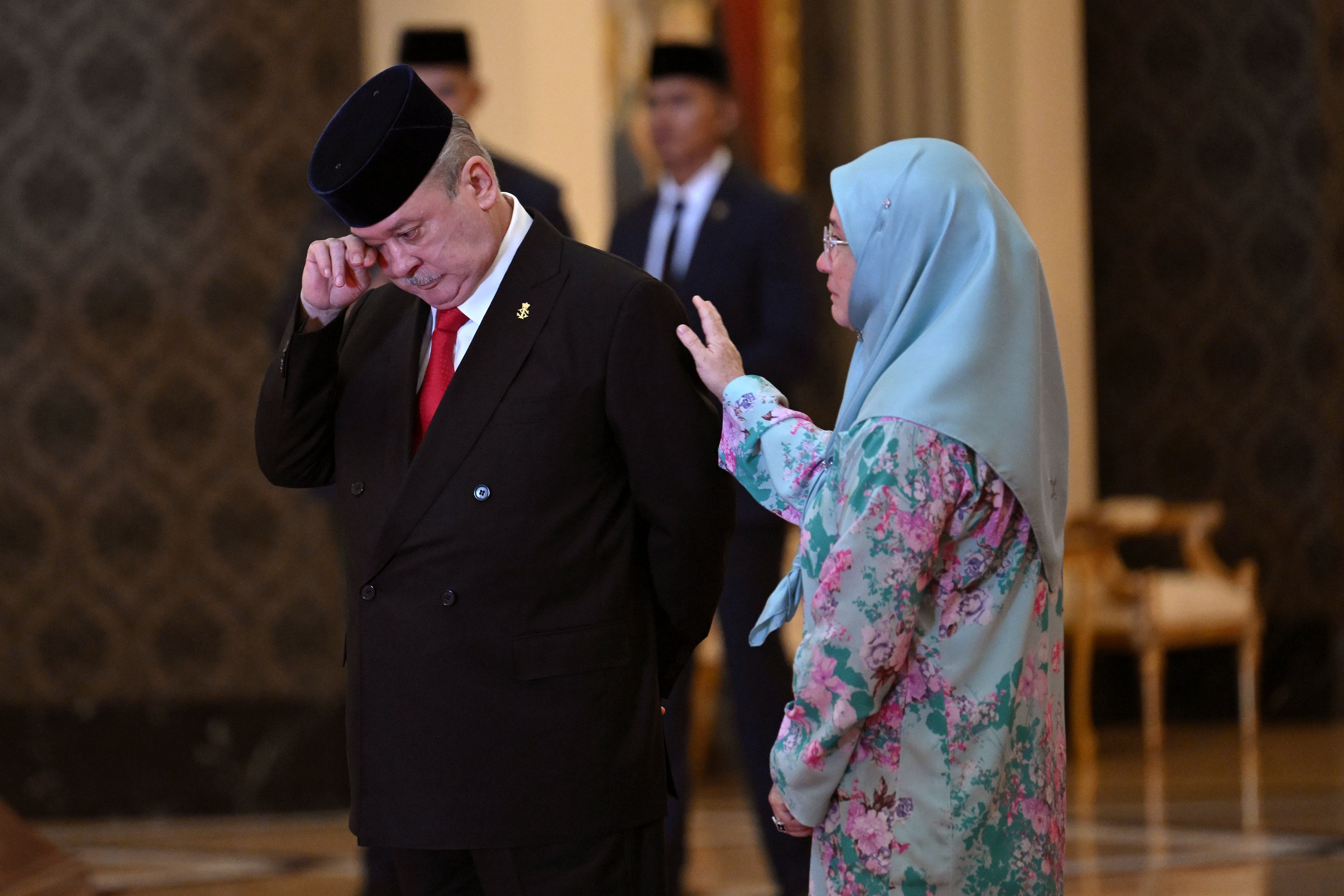
In 2020, when then-prime minister Mahathir Mohamad resigned, the king met all 222 lawmakers to decide which of them could command a majority to form the next government. He appointed Muhyiddin Yassin as the premier after those meetings.
In 2021, when Mr Yassin lost his majority, the king picked Ismail Sabri Yaakob to be premier after a similar process.
He picked Anwar Ibrahim as prime minister in late 2022 when a general election resulted in a hung parliament.
The king also has the power to pardon convicted people. In 2018, King al-Sultan’s predecessor, Sultan Muhammad V, pardoned Mr Ibrahim, who was then imprisoned on sodomy and corruption charges that he says were politically motivated.
Additional reporting by agencies
Join our commenting forum
Join thought-provoking conversations, follow other Independent readers and see their replies
Comments